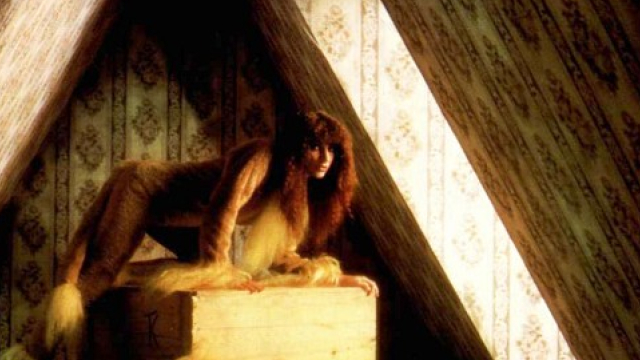I don’t remember where I heard this phrase, but there is a mantra that in popular music the first record gestates for 10 years and the second record gestates for 10 months. I like to think that whoever came up with that phrase was specifically thinking of Lionheart, which came out in the same year as Kate Bush’s remarkable début. If you had told me, though, that they were actually the other way around in her discography, I would have believed you.
Lionheart is probably the most neglected record of classic Kate Bush, even more so than The Red Shoes (a discussion for another time). It can be easy to see why: it doesn’t have the have the new experimentations of Never for Ever; The Dreaming‘s multi-layered theatricality; the artistic and commercial bridge of Hounds of Love or The Sensual World’s electronic, sensory soundscape. But whilst I will not overstate anything by stating Lionheart as some kind of overlooked masterpiece – even Kate Bush herself was disappointed with the record, it being the spark for her to start her own production company – there is still far too much good and even great here to overlook.
The production is very close to The Kick Inside, but there enough changes in that formula to demonstrate itself as its own beast (lion pun!). For one thing the tracks are even lusher in their instrumentations, such as the electronic piano and brass band on the Bowie-esque “Don’t Push Your Foot on the Heartbreak” and the variety of percussion on the at points pretty funky “Full House” (there was a reason Prince liked Kate Bush enough to include her on Diamond and Pearls). The best example of this is the inclusion of the mandolin and flutes on the exemplary track “Wow,” which is also the best case for Kate Bush’s voice as it moves through those keyboards and strings with both an operatic ease and a youthful tenderness. Some of the compositions too are darker, even on the piano ballads like “In the Warm Room” with its minor and diminished chords and Kate’s voice this mixture or sensual and mournful. It’s not the “darker version” of The Kick Inside, more as a means to add that dark edge needed to give a fairy tale any kind of meaningful substance.
At a fair few occasions though, this maximalist approach is pretty tiring, and can distract from the actual songwriting. Take the closer “Hammer Horror”, which compositionally and in terms of subject matter is one of my favourites off the album; this is predominately a movie site after all! But there is a little too much going on in the bottom of the track – like the extra guitar chords and strings – for it to all completely sink in (though it would go on to demonstrate Kate Bush’s tendency to represent both theatrical and genuine horror). The production is also the reason why, despite its Arsenic and Old Lace references and the bombastic brass, I actively skip the track “Coffee Homeground” altogether (as well as the verses and choruses just not fitting well together).
Despite those complaints, for such a “rushed” work (some compositions were likely done pre-Kicking Inside) it is pretty remarkable how much of this record holds together. Musically at least this is not a simpler record than its predecessor. If anything has taken a noticeable shift in complexity it is Bush’s lyrics. This is apparent from the opening track, “Symphony in Blue,” which is probably one of the best tracks musically with its layered guitars and pianos complimenting her voice beautifully. But there is either over explanation in the lyrics (where there wasn’t in the last record), or simple lines like “the more I think about sex, the better it gets.”
To be fair to “Symphony in Blue,” it is so much themed around the imagery of primary colours you could make the argument that these primal desires and words are the most appropriate. I like to think that the simpler lyrics are why Lionheart is so themed around fairy tales, with three songs devoted entirely to the subject and the album cover of the lion-cladded Bush lit by the light of an attic window. There is every possibility Kate Bush wished to take the naiver poetry and heighten it with the archetypal imagery of the characters in this fiction. Also, the sheer amount of characters on this album, from the mythic (Peter Pan) to the human (Emma and Dennis) to people that take a space in-between (Kashka of Baghdad), even more so than The Kick Inside shows Bush’s penchant for the theatrical, for the narration and inhabiting of characters.
But even then there are the occasional clunker lines like “You’ll fall into her like a pillow/Her thighs are soft as marshmallows.”
Lionheart in terms of the Kate Bush canon is like a Roger Corman production, the Boxcar Bertha of her career; proof that even with time restraints and production obligations, an incredible talent will show themselves regardless. It is not as memorable as her début or later works, but it is still a beautiful demonstration of all the talent Dave Gilmour’s support for her had promised, with some iconic tracks like “Wow” being radiating stand-outs. Still though, its reaction made Kate Bush decide to take more autonomy for her projects, and inspired by emerging techniques such as drum machines and sampling, we would see exactly what she could do…
What did you think though?
Kate Bush Album Ranking
- The Kick Inside
- Lionheart

